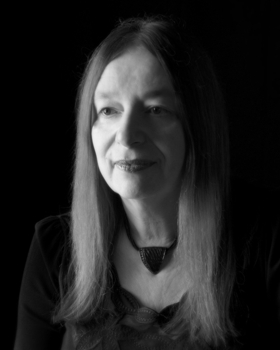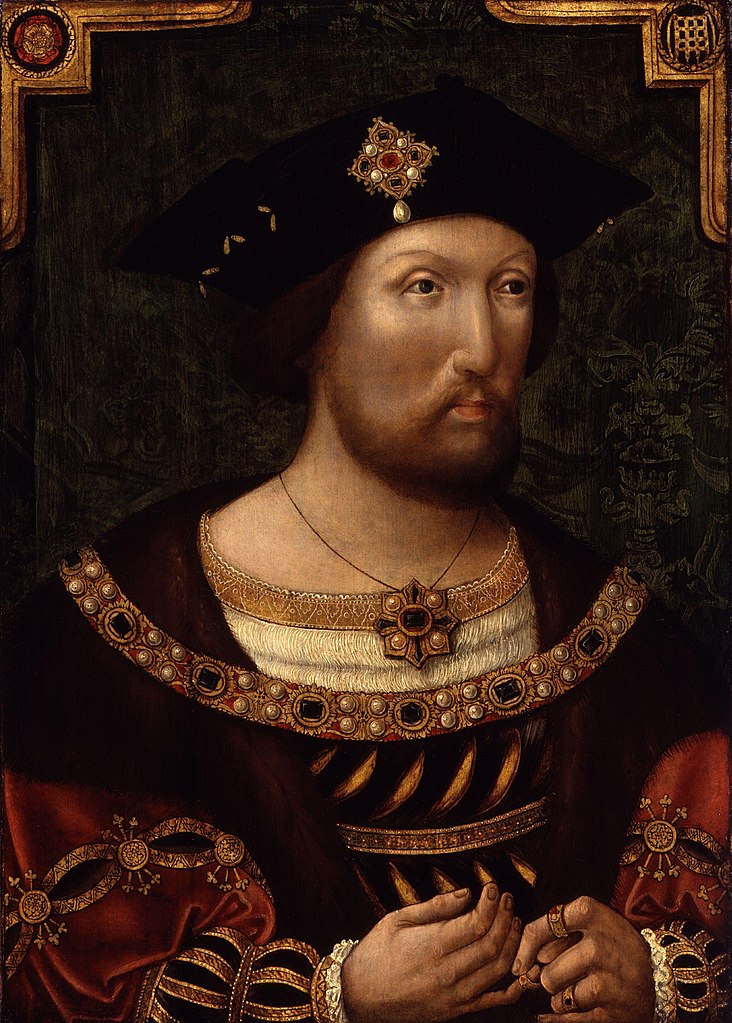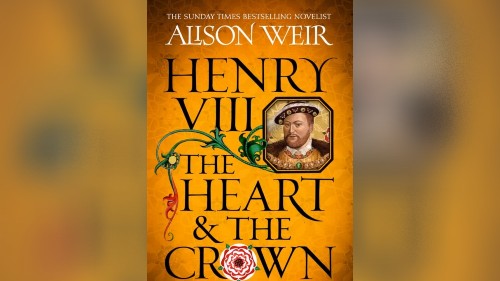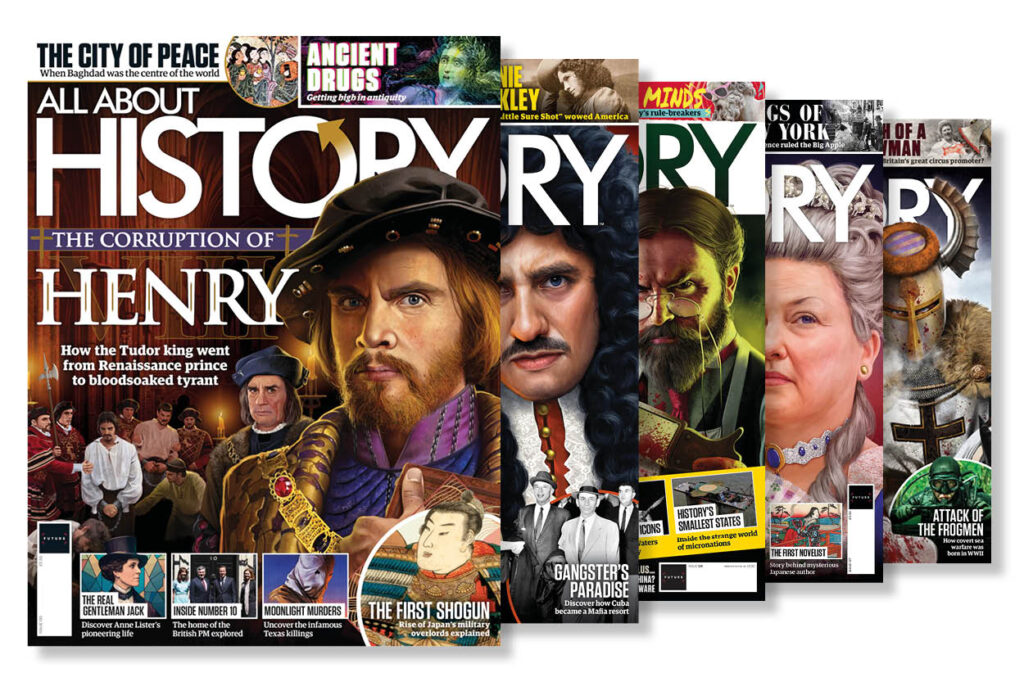Historian and author Alison Weir talks about her new novel, written from the perspective of Henry VIII, and discusses the early reign of the Tudor monarch, his first divorce and his legacy.
• In Henry VIII: The Heart & The Crown, young Henry seems to have a very set opinion on how women and men should behave. Was this typical for a prince of his time and do you think these expectations of himself and women governed how he acted towards his later wives and his mistresses?

I think you have to look at the cultural and social environment in which he was brought up because at that time women were seen as inferior beings to men. It was seen as unnatural for a woman to wield dominion over men, and Henry would have been brought up with that view, but he also had examples before him of women who did rule successfully in Europe. At court, the code of courtly love prevailed, whereby a man could pay court to his chosen lady, who might be married or above him in rank, so seemingly unattainable. In courtly love, manners were important, as was the way the suitor treated his lady. Women were to be protected, and they were idealised. Henry was imbued with this concept from childhood, and he came to see himself as a knight errant; it is apparent in all his courtships. He was also influenced by his view of his mother. I think Henry idealised and adored her mother. She died when he was 11 and that was a tragedy for him and probably a tragedy for his wives because I think she was the benchmark against which he compared women. She was the ideal medieval queen, a role she fitted perfectly in life.
• Why did Henry VII not give his son, Henry, the opportunity to practise kingship in the same way he had allowed his elder brother, Arthur, to before his death?
Henry’s relationship with his father was far more complicated. The death of his older brother Arthur in 1502 left him heir to the throne, but had an unfortunate consequence for Henry. The previous summer the King had considered giving the younger Prince his own household at Codnor Castle, Derbyshire, which would have given him a degree of independence. But once he became the only surviving son and heir, he had to stay at court, protected and isolated, and did not enjoy any independence while his father lived. Because Henry VII kept him under close supervision – ‘locked away like a woman’ and brought up more like a girl than a boy, as the Spanish ambassador put it, adding, ‘He is so subjugated that he does not speak a word except in response to what the King asks him.’ Henry’s bedchamber could only be accessed through his father’s, and he was not allowed much freedom of movement, spending his formative years mainly with his tutors, who were ‘sober and discreet’ old men, and the noble boys who had been selected as his companions. He grew up to be ‘a prodigy of precocious scholarship’, learned and pious, but lacking experience of life. Probably the King had fears for the succession and the health of this one remaining son, in whom were now vested all the hopes of his dynasty, which would explain why young Henry was never sent to live at Ludlow Castle as Prince of Wales, as Arthur had been. Yet Henry VII also seemed reluctant to instruct his heir in the art of government or allow him to read state papers. It is possible that he had already assessed his son’s character and potential and come to fear him or was concerned that factions might form around him. On one occasion, the King got so angry with young Henry that it looked ‘as if he sought to kill him’; instead, he locked him up until his anger had cooled. His treatment of his heir may have proceeded from dread that those who were dissatisfied with his rule would rally around the boy and clamour for his succession.
• Do you think that Henry was prepared for kingship by the time his father died in 1509?
In some ways yes: he was prepared for virtuous kingship through the all-round Renaissance education he had been afforded, but he’d been isolated and had little experience of life. Nevertheless, he had witnessed the way his father had formulated a successful foreign policy and dealt with threats to his throne.

• Do you think Henry, himself, believed that he was capable of being king?
I think he did. He knew what monarchy meant. It was believed that anointing a king at his coronation conferred an almost priestly function and set a monarch apart from his subjects. Monarchs were believed to be invested with a wisdom and understanding that was denied to mere mortals. They were God’s representative on Earth and the King’s decisions were seen as the will of God working through the will of the King. You can see why Henry became so egotistical once he became king and came into his majority at the age of 18.
• Do you think Henry wanted to set himself apart from the reign of his father before him?
His father was known to be a miser in many ways. He was very careful with money to the point that courtiers were joking about it. When his pet monkey ate his account book, they thought that was hilarious. Henry’s desire to distance himself from his father’s policies became clear when the late King’s two most rapacious ministers, who were notorious for their methods of extorting money, were beheaded in a popular move early in his reign.
• Henry was married to Catherine of Aragon for over 20 years before he sought a divorce. How do you think his personality and priorities changed once it dawned on him that he might never have a son with Catherine?
I think he became very frustrated. There were several factors. He didn’t have a male heir and he was genuinely worried about succession and what would happen if he died. He had been brought up with the Tudor version of the Wars of the Roses, which showed the Tudors in the most wonderful redemptive light, rescuing the land from thirty years of bloody civil war between the royal house of Lancaster and York, whose blood was embodied in Henry. Tudor historians portrayed the Wars of the Roses as a terrible time. In fact, there was only one year of campaigning and about eleven weeks of fighting in that time. But Henry was so worried about not having an heir that at one point he even considered marrying his only legitimate child Mary to her half-brother, his illegitimate son Henry Fitzroy, because he couldn’t envisage a woman ruling. At the same time, fell in love with Anne Boleyn and begged her to be his mistress in the physical sense, which she refused. Then he beseeched her to be his mistress in the courtly sense. He voiced doubts that his marriage was lawful. What came first is not clear – whether those doubts were born of his passion for Anne Boleyn, or whether they were genuine and predated his feelings for Anne. His frustration grew worse after he applied for an annulment of his marriage to Katherine of Aragon in 1527, and the Pope put off making a decision until 1534, when he declared the marriage valid. By then, Henry had lost patience and become completely disillusioned, and had broken the Church of England away from Rome and set himself up as its Supreme Head under Christ. It’s easy to see where his frustration was coming from. There is an odd theory, based on an unreliable source, that he had a fall from his horse in early 1536, which caused brain damage and a sudden change in character. But there was no such change. The change in him was gradual, and you can see it evolving all through those years of the Great Matter, as the divorce was called, so I don’t believe that Henry’s character changed suddenly.
• Did Henry give any serious consideration to putting his illegitimate son, Henry Fitzroy, on the throne?
The King could name anyone he liked as his heir by Act of Parliament. The 1544 Act of Succession left the Crown to Henry’s three heirs, Edward, Mary and Elizabeth. Failing them or their heirs, it was up to the King to name his successor. The Pope could have given a dispensation to allow the marriage of half-brother and sister, although that would have been very rare and very controversial. And it remained to be seen whether the people of England would have accepted Henry Fitzroy as heir. There were several hurdles to be overcome, but many believed that Henry was grooming his son for kingship. It was a desperate measure.
• Why did Henry ultimately decide to divorce Catherine of Aragon?
Henry stated that the French ambassadors who visited in the spring of 1527 (to arrange a marriage between his daughter Mary and the son of the King of France) raised the question of Mary’s legitimacy, because Catherine of Aragon had been married to his late older brother, Arthur, Prince of Wales. That had been resolved, apparently, before the time the king got married to Catherine in 1509. The Pope had granted a dispensation and the marriage had gone ahead, but some still had reservations about it because the Biblical Book of Leviticus warned that if a man married his brother’s wife and uncovered his brother’s nakedness, they would be childless. Henry came to believe that, and I’m pretty sure it was sincere because no one could convince him to the contrary; he was like a man on a mission. But if you look at the canon law, the Book of Deuteronomy states says that a man should marry his brother’s widow and raise up children for his brother. The two texts seem incompatible, but that in Leviticus does not apply where the late brother has died childless. That’s rather different from how Henry interpreted that.

• Towards the end of Henry’s life, do you think he believed he would be remembered as a tyrant?
I’m not sure that he did. He was usually pretty sure of himself, but in his last speech to Parliament he did acknowledge he had faults. I think he was becoming reflective because he knew he hadn’t got long to live. One wonders if he was looking at himself and taking stock. But his popularity endured, and therefore I think he would have had a rather different view of himself from the way some think of him today. I think he’s had bad press in many ways. Yes, he could be a monster – I’m not trying to say he wasn’t, but everything he did was legal, even if he had to pass the laws to make it legal, which happened in the case of Lady Rochford who was arrested with Catherine Howard and had literally fallen into a frenzy, which meant she had gone insane. An act was passed enabling the king to execute an insane person. Because Henry acted within the law he wasn’t a tyrant in the strict sense. His popularity endured and he appealed to something in the English national consciousness. His memory was revered by his children. Of course, the Roman Catholics didn’t like him at all. I’m researching Mary I at the moment and she often invoked her father, even though he had treated her badly (by our standards) when she she refused to acknowledge that his marriage to her mother was unlawful. He made her sign a declaration to that effect, for which she may never have forgiven herself, yet she thought highly of him. During her brother Edward’s reign, she constantly urged that her father’s religious settlement be honoured, and even though she later brought England back into the Roman fold, she still upheld his settlement when she first came to the throne.
• Henry is remembered very differently now than he was at the time of his death. Why do you think the caricature of Henry has become so embedded in popular imagination?
Charles Laughton played Henry VIII in The Private Life of Henry VIII in 1933 – a hugely influential and very popular film. Because of that, people still think Henry VIII was a bloated monster who chased women and chopped off heads with gleeful alacrity. This caricature had developed over centuries, actually – you find similar 18th- and 19th-century comic representations of Henry VIII. His is such a fantastical story. You can’t make it up.
• Why did you feel like it was important and the right time to delve into Henry’s perspective and his point of view?
I was commissioned to write a series of six novels on the wives of Henry VIII, and each one had to be written from each Queen’s point of view. My agent made a joke at the beginning, saying that we’d then have to have Henry’s point of view. In the end, everybody agreed that Henry should have his voice. It was quite a challenge to write from a man’s point of view and also to find a voice for him because I was aware that I was writing a novel about a very well known and iconic character. It had to ring true. I’ve actually read so much written by and about him, so I felt I knew him to a degree, so it was not as difficult a challenge as I had feared.

Subscribe to All About History now for amazing savings!
